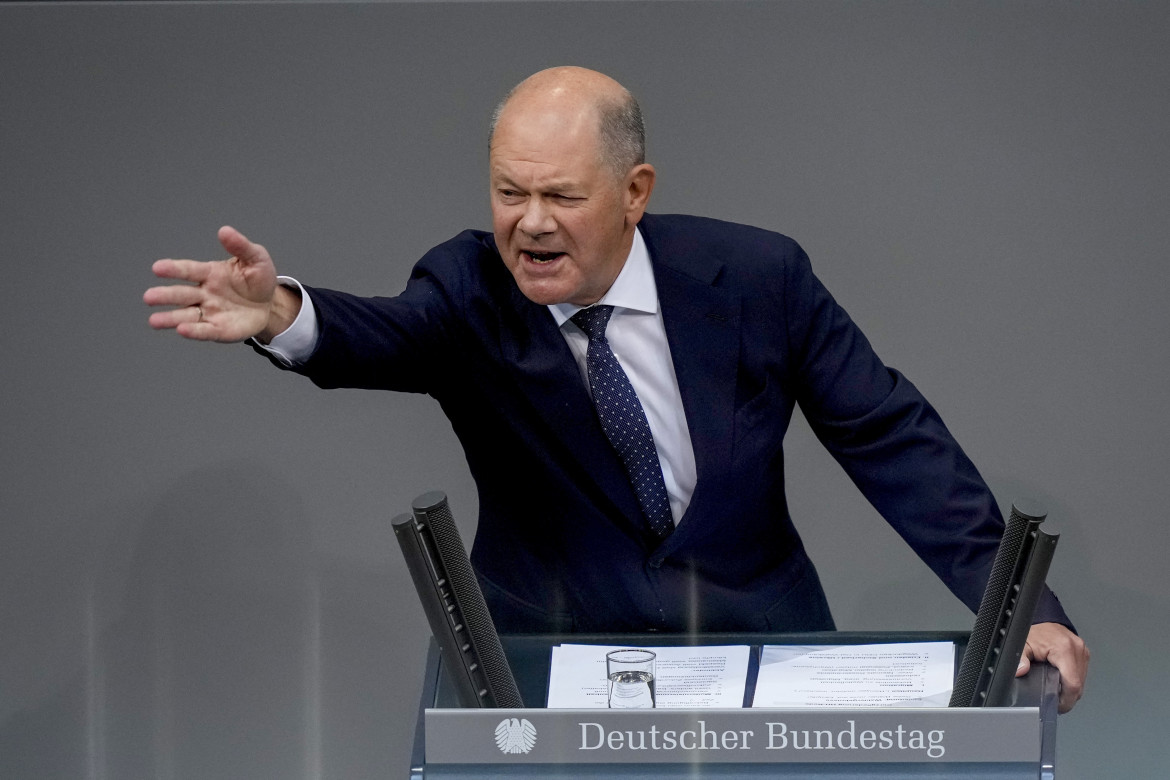Analysis
EU panics after Germany announces closed-border immigration crackdown
Beside suspending the Schengen zone’s free travel provisions by closing its borders, Berlin aims to make it easier to push back illegal immigrants. These measures have angered all the neighboring states but also the European Union.

The political clash has reached its apex in Germany. As announced by Interior Minister Nancy Fraeser, starting on Monday the country will close its borders for six months, the first move of the projected crackdown by the red-yellow-green government to stop migrant arrivals.
However, Chancellor Olaf Scholz’s hope to use the new measures to forge an alliance with the CDU-CSU that would be able to stop the rise of the far-right AfD (after Thuringia and Saxony, in a week's time Brandenburg will go to the polls) completely backfired due to the Christian Democrats’ unwillingness to sign on to measures they still deemed insufficient, to the point that opposition leader Friedrich Merz accused the government of being “incapable of action and without leadership.”
The harsh verdict further heightened the tensions and provoked a reaction from Scholz in his speech to the Bundestag: “You are the kind of politicians who believe that migration policy can be solved with an interview in Bild,” he told the CDU-CSU parliamentarians, whom he accused in turn of “talking and doing nothing.” “That is why we are committed to action,” continued the chancellor. “Unlike the many decades of Christian Democrats who didn’t get it done.”
We are very far from Angela Merkel’s “Wir schaffen das” (“We can get it done”) from 2015, when she opened the country's doors to nearly a million refugees. After the jihadist attacks in recent weeks, both the government and opposition parties know that the migrant issue will once again be decisive in the voters' choices. At stake are not only local elections, such as those soon to be held in Brandenburg, but also the federal ones, which, barring any unexpected twist, will take place in a year's time. It is no coincidence that the AfD fanned the flames on Thursday by calling for a stop to the entry of migrants for at least five years, while the state of North Rhine-Westphalia approved a package of anti-migrant measures that gives more powers to the police and imposes stricter repatriation rules.
Beside suspending the Schengen zone’s free travel provisions by closing its borders, Berlin aims to make it easier to push back illegal immigrants, not only those who do not intend to seek asylum in Germany, but also, and especially, those in the care of other countries. These measures have angered all the neighboring states, starting with Austria – where elections will take place at the end of the month and an advance by the far right is likewise expected – and Poland.
But they are also of great concern to the European Union, which fears that other countries will adopt similar measures. A first discussion on the situation was scheduled for Thursday, with the Schengen Committee meeting in Brussels to hold Berlin to account for its choices.
An initial explanation was contained in the letter Nancy Fraeser sent to the European Commission announcing the border closures: illegal immigration was still “a worrying situation,” the minister wrote, also calling the numbers of arrivals “unacceptable,” estimated at 50,000 from the beginning of the year until July. There are also problems with federal resources that are “almost exhausted,” with difficulties even in finding housing for refugees. Fraeser wrote that migration authorities are “increasingly reaching the limits of what can be achieved in terms of reception, housing and assistance,” while there is also the additional problem of preventing “threats to security and public order.”
Before Thursday, there were no comments from the Commission on Fraeser’s explanations. The only statement was made by the European Community immigration spokeswoman, Anitta Hipper, which showed telling signs of the level of disappointment among the European leadership, stressing that the reintroduction of internal border controls must be a “measure of last resort” for governments, which must demonstrate that it is a “necessary and proportionate” response.
Meanwhile, Viktor Orbán, a longtime advocate of closing borders as an anti-migrant measure, had a very different attitude to the news about the new German measures: “[Chancellor] Scholz, welcome to the club!” the Hungarian Prime Minister wrote on X.
Originally published at https://ilmanifesto.it/migranti-scontro-in-germania-panico-nellue on 2024-09-12
